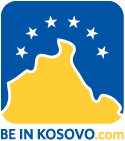Education In Kosovo

Primary Education in Kosovo
In Kosovo, primary education (grades 1-5) and lower secondary education (grades 6-9) are compulsory for all children starting at the age of 6. These levels of education are free of charge, ensuring accessibility for all citizens. The curriculum is designed to cater to a diverse population, with education being offered in multiple languages, including Albanian, Serbian, Turkish, Croatian, and Bosnian, depending on the ethnic community.
Secondary Education in Kosovo
Secondary education in Kosovo is divided into general and professional education tracks, typically lasting 3-4 years. While not mandatory, this level of education is highly encouraged, with students choosing their path based on individual interests. Professional secondary schools are focused on preparing students for the labor market or higher education. There are eight types of schools offering various teaching profiles, providing a diverse range of educational opportunities.
Higher Education in Kosovo
Kosovo offers a robust higher education system with both public and private institutions, offering a wide range of programs, including Associate’s, Bachelor’s, Master’s, and PhD degrees. Students can choose between full-time and part-time study options. The higher education system in Kosovo follows the Bologna Process, ensuring that it meets European standards for quality and structure.
The Ministry of Education, Science, and Technology, through the Kosovo Accreditation Agency (KAA), oversees the accreditation of educational institutions, ensuring that the quality of both private and public higher education meets the required standards.
Rochester Institute of Technology (RIT) Kosovo: A Premier Private University in Kosovo
The Rochester Institute of Technology (RIT) Kosovo is a leading private, non-profit university in Kosovo that offers high-quality education in English. With a reputation for academic excellence, RIT Kosovo attracts students from across the country and beyond, offering globally recognized and accredited degrees thanks to its partnership with the prestigious Rochester Institute of Technology (RIT) in Rochester, New York, USA.
RIT Kosovo follows the same rigorous curriculum as RIT in the United States, ensuring students receive identical degrees, exams, syllabuses, and grading standards. Many professors and faculty members from the RIT main campus in Rochester also teach at RIT Kosovo, further enhancing the academic experience. RIT Kosovo’s international student body, hailing from numerous countries, underscores the institution’s global reputation for excellence in education.
For more information, visit: RIT Kosovo Website
University of Prishtina: A Leading Institution of Higher Education in Kosovo
The University of Prishtina, established by the Law on the Foundation of the University of Prishtina on November 18th, 1969, represents a historic milestone for Kosovo’s population, particularly for the Albanian majority in Kosovo. The university’s foundation assembly was held in February 1970, marking the beginning of a new era in education.
Initially comprising four faculties—Philosophy, Law and Economics, Engineering, and Medicine—the University of Prishtina has expanded to include 17 faculties. In addition to its main campus in Prishtina, the university has branches in Gjilan, Gjakova, and Prizren, offering a variety of programs to students across the region.
The University of Prishtina is one of the first higher education institutions in the Balkans to embrace significant reforms in line with the Bologna Process. In 2001/2002, the university adopted the European Credit Transfer and Accumulation System (ECTS), enhancing its academic standards and aligning with European educational norms. ECTS Coordinators have been appointed across all academic units, and they continue to engage in training and exchange programs with renowned European experts to ensure the success of the Bologna Process.
For more information, visit: University of Prishtina Website
If you want to know more about the education of other Balkan countries, click here: www.beinbalkan.com
